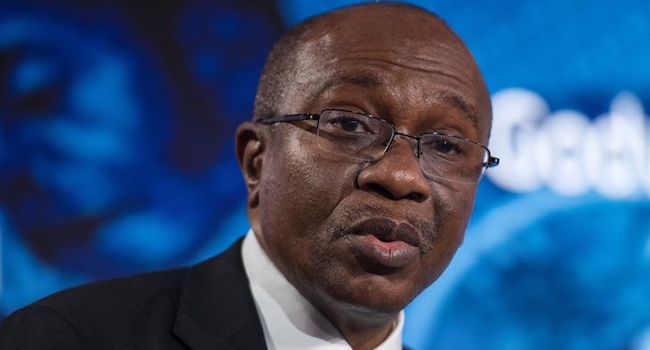A Professor of Pharmacology, Therapeutics, and Toxicology at the Lagos State University College of Medicine (LASUCOM) Ikeja, Adejuwon Adeneye, has urged the government at all levels and the relevant agencies to give better attention to traditional medicine practice in the country, saying the subsector, which is informal, has the great potential to drive meaningful progress in Nigeria’s healthcare delivery system and the economy at large.
He opined that for Nigeria to achieve the UN’s Sustainable Development Goal 3, which is ensuring “Good Health and Well-being for All” by 2030, it depends largely on how vibrant the complementary and alternative medicine practice (CAM) is in the country.
He said that though traditional medicine using medicinal plants and roots to treat various diseases and ailments is not accorded due recognition despite the great role being played not only in Nigeria but across developing countries, it is on record that between 60 and 85 per cent of the population of each country rely on one form of CAM or the other.
Adeneye, who is a former acting Dean of the Faculty of Basic Medical Sciences at LASU, shared this thought and perspective while delivering the 100th inaugural lecture series of the 41-year-old LASU on Tuesday at the main campus in Ojo.
He spoke on “Green Medicine: Nature’s Gateway to Sustainable Healthcare Delivery in Nigeria.”
The don declared that it is not only that alternative medicine is affordable and accessible to many; its wide acceptance in developing countries, including Nigeria, is based on the wisdom and practice as well as socio-cultural and religious beliefs of forefathers passed on across generations.
“So, to achieve universal health coverage and equitable access of healthcare services to all in both easily reachable and hard-to-reach communities will require that government and other stakeholders in the health sector be able to harness all available resources in this direction,” he noted, adding that “a healthy person is a healthy nation.”
Adeneye, who also decried that Nigeria has no reason for being poor in the face of its abundant human and material resources, highlighted some pathways for the country to go to attain greatness, through green medicine, health, and other sectors of the economy.
According to him, there is an urgent need for full integration of CAM into the current healthcare delivery system in the country and this to form part of the ongoing reform in the sector.
While acknowledging the challenges such a step could pose, he pointed out that the benefits are great and worthwhile as far as the large population is concerned.
He said that was why it is important to safeguard the already endangered collection of medicinal plants in the Nigerian forest and also to promote their local cultivation on a large, sustainable scale, even as he advocated strong legislation to protect the environment and wildlife conservation.
Adeneye also mentioned that the National Universities Commission (NNUC), which is the Federal Government’s regulatory agency, had a great role to play in this regard by strengthening medical program curricula to include the study of alternative medicine as part of courses to be offered by medical students.
He explained that this initiative is doable and now is the right time as the new curricular system is being considered for medical and other undergraduate degree programmes in the country.
He pointed out that such courses would help to train, sensitise, and widen the frontiers of knowledge of young Nigerian medical graduates at both graduate, postgraduate, and professional levels on CAM integration as the practice in some relatively advanced countries like Germany, India, China, Thailand, Switzerland, Japan, South Korea, and Brazil.
He said he is strongly convinced that programmes like these would give room for robust research into some ethnomedical practices, close up the huge gap in the healthcare needs of Nigerians, and also reduce “Japa Syndrome'( brain drain) among young Nigerian doctors.
He, therefore, urged the leadership of LASU to take the recommendations and set the pace by being the foremost university in Nigeria to establish a traditional medicine/CAM research centre and make it functional.
He said the university has the wherewithal to carry out the task and champion the course for the benefit of the country.
Adeneye, however, thanked the almighty God, the university management, and all individuals and organisations who had in a way contributed to his academic and life attainment, promising to do more in the sharing of knowledge and contribution to humanity.
In her remarks, the Vice Chancellor of LASU, Prof. Ibiyemi Olatunji-Bello, eulogised the virtue of the inaugural lecturer, describing his contribution to the medical field as unquantifiable.
She added that his lecture had brought a good dimension to alternative medicine, even as she congratulated him on his insightful lecture.
Dignitaries at the event include the former vice chancellor of LASU, Prof. Abisogun Leigh; former Secretary to the Lagos State Government, Prof. Aba Omotunde Sagoe; former VC, Bishop Ajayi Crowther University, Oyo, Prof. Dapo Asaju; wife of the inaugural lecturer, Mrs. Funmilola Adeneye; and so forth.
ALSO READ THESE TOP STORIES FROM NIGERIAN TRIBUNE

 2 hours ago
4
2 hours ago
4








